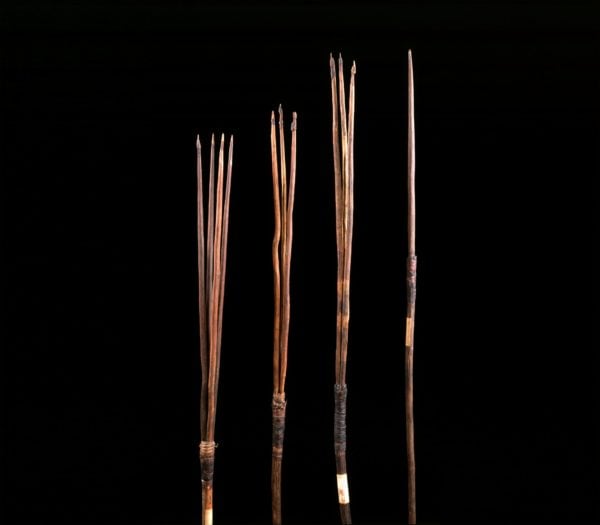Aboriginal spears stolen from Botany Bay in 1770 by British colonizer, James Cook, are now being repatriated to Australia.
Four Aboriginal spears taken by British explorer James Cook in 1770 will be repatriated to the La Perouse Aboriginal community, according to a news release from the University of Cambridge’s Trinity College. These spears are thought to be some of the oldest surviving artifacts stolen by any European from Australia.
The spears were originally part of a group of 40 stolen by Cook from Kamay, also known as Botany Bay, without the consent of the Aboriginal people living in eastern Australia. After Cook returned to England, four of the spears were presented to Trinity College. They have been held by Cambridge’s Museum of Archeology and Anthropology since 1914.
The repatriation of these spears is significant because they are important connections to the past, traditions, and cultural practices of the La Perouse Aboriginal community. Many of the families within the La Perouse Aboriginal community are descended from those who were present during the eight days the Endeavour was anchored in Kamay in 1770. Shayne Williams, an elder of the Dharawal Nation, emphasized the importance of the spears for cultural education and thanked Trinity College for caring for the “priceless” artifacts for more than 200 years.
La Perouse Aboriginal Land Council chairperson, Noeleen Timbery, said this on the spears, “They are an important connection to our past, our traditions and cultural practices, and to our ancestors.”
The decision by Cambridge to return the spears to the La Perouse community echoes recent decisions taken by other universities and cultural institutions to return artistic and cultural artifacts that were stolen or looted. Decades of campaigning by Indigenous activists have put pressure on museums to reconsider the provenance of collections and grapple with the cultural legacy of colonialism.
The spears will be stored at the National Museum of Australia in Canberra until they can be transported to the La Perouse community. The local community is currently constructing a new visitor center that will host the artifacts. The repatriation of these spears is a significant moment for the La Perouse community and Indigenous communities across Australia.
Love Music?
Get your daily dose of metal, rock, indie, pop, and everything else in between.


































